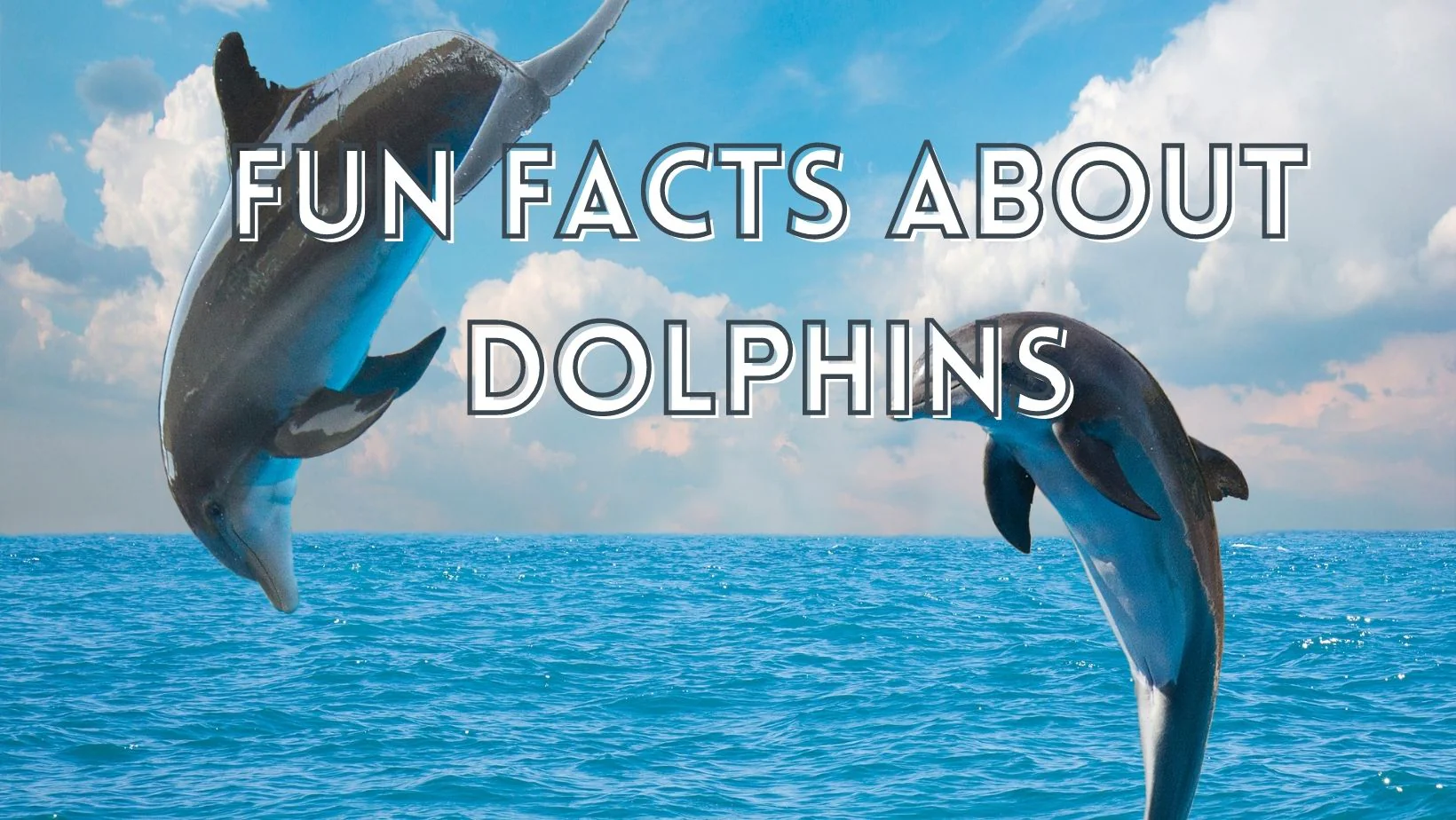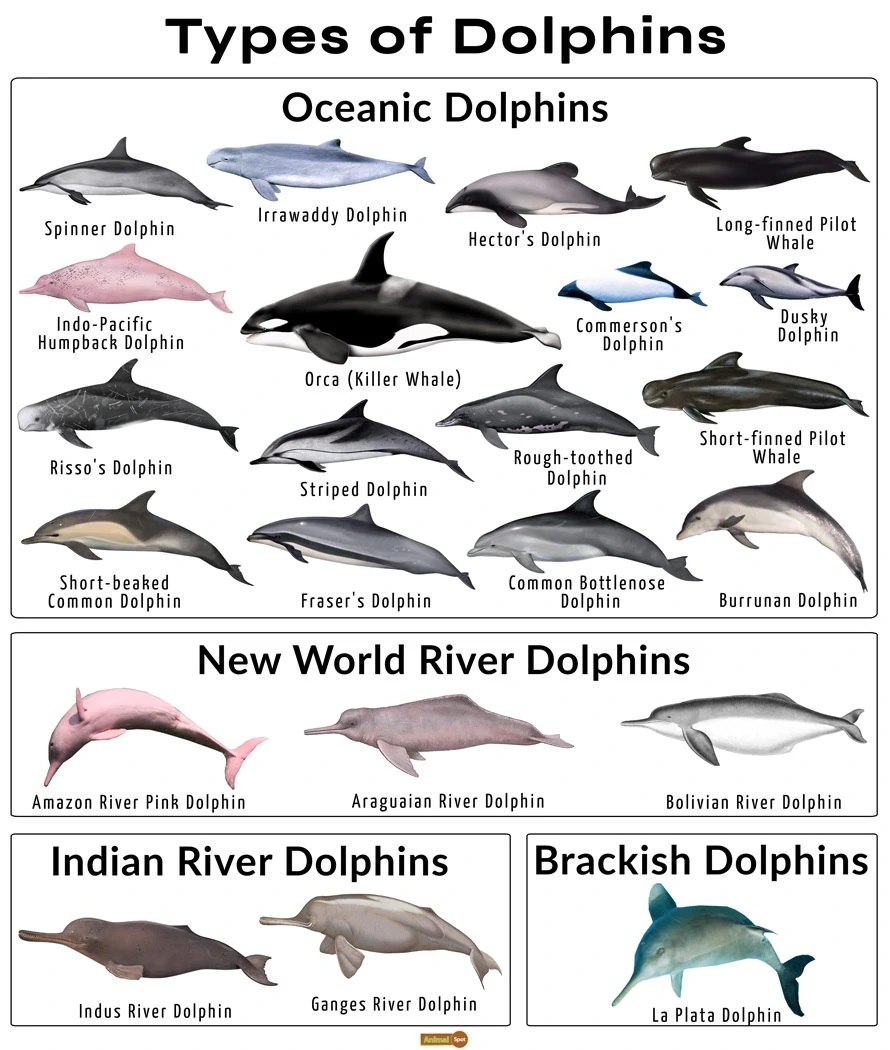Obtain Motivated by Dolphin Facts That Emphasize Their Problem-Solving Abilities
Obtain Motivated by Dolphin Facts That Emphasize Their Problem-Solving Abilities
Blog Article
Study the Ocean: Exciting Dolphin Truths for Sea Lovers
The globe of dolphins presents a remarkable junction of intelligence, social actions, and environmental value. With around 37 varieties, these aquatic mammals display an array of exceptional characteristics that not just captivate sea fanatics however additionally underscore their crucial function in aquatic environments. From their intricate interaction approaches to their remarkable problem-solving abilities, dolphins challenge our understanding of pet intelligence. Nonetheless, journalism need for conservation efforts to protect these animals and their environments raises important inquiries about our responsibility towards the ocean's occupants. What ramifications do these factors hold for our interactions with these exceptional beings?
Dolphin Variety Diversity
Diversity is a hallmark of the dolphin family, incorporating a wide range of species that show distinctive physical characteristics, habits, and environments. The family Delphinidae, commonly called nautical dolphins, consists of about 37 varieties, each adapted to details eco-friendly particular niches. The bottlenose dolphin (Tursiops truncatus) is renowned for its knowledge and adaptability, flourishing in both seaside and open sea settings.
On the other hand, the orca (Orcinus whale), commonly referred to as the killer whale, is the biggest participant of the dolphin household and is defined by its striking black-and-white pigmentation. Orcas demonstrate intricate social structures and searching techniques, showcasing the behavioral diversity within the family. Various other types, such as the spinner dolphin (Stenella longirostris), are noted for their acrobatic display screens and preference for warmer waters, highlighting the adaptability of dolphins to numerous marine ecosystems.
Additionally, river dolphins, including the pink river dolphin (Inia geoffrensis), live in freshwater settings, better showing the extensive environments that dolphins occupy. Dolphin Facts. This extraordinary diversity not just enriches marine ecological communities yet also highlights the importance of preservation efforts to shield these exceptional animals and their environments
Social Habits and Interaction
The elaborate social habits and interaction methods of dolphins are crucial elements of their existence, helping with group cohesion and enhancing survival. These highly smart aquatic animals show facility social structures, often forming husks that can vary from a couple of individuals to over a hundred. Within these groups, dolphins participate in habits such as participating searching, social play, and mutual protection, which foster strong bonds amongst participants.
Dolphins use a sophisticated selection of articulations, including clicks, whistles, and body language, to convey details and reveal emotions. Their signature whistles serve as distinct identifiers, similar to names, enabling individuals to call out to one an additional. This vocal interaction is complemented by non-verbal signals, such as leaping, slapping the water, and synchronized swimming, which additionally enhances their communications.

Unique Feeding Behaviors
One-of-a-kind feeding routines define dolphins, showcasing their versatility and intelligence in numerous marine environments. These aquatic animals are known for their varied diet plans, which primarily include fish, squid, and crustaceans. Their searching methods can vary dramatically, commonly tailored go to my blog to the details victim and environmental problems.
One remarkable technique is participating searching, where dolphins work in groups to herd institutions of fish right into limited formations, making helpful site it easier for individuals to capture their dish. This social habits not just enhances their feeding performance however additionally enhances social bonds within the case. Furthermore, dolphins have actually been observed using a technique called "fish-whacking," where they utilize their tails to stun or confuse fish, facilitating much easier capture.
Another interesting feeding routine is echolocation, which permits dolphins to spot victim even in murky waters. Generally, the one-of-a-kind feeding habits of dolphins highlight their role as competent killers within the aquatic environment, showing both knowledge and ingenuity.
Knowledge and Issue Fixing
Dolphins exhibit impressive cognitive capacities that expand past their innovative feeding strategies. Their intelligence appears in their analytical skills, social interactions, and capacity for learning. Research has actually shown that dolphins can use tools, such as utilizing marine sponges to protect their rostrums while foraging on the seafloor. This behavior highlights their capacity to adjust their setting successfully and adapt techniques to enhance survival.
Furthermore, dolphins exhibit innovative interaction skills, using a complicated system of clicks, whistles, and body language. Dolphin Facts. This interaction is vital for collaborating group tasks, such as hunting and socializing, highlighting their ability to work jointly in the direction of a common goal. Their capability to comprehend abstract concepts, consisting of self-recognition in mirrors, even more highlights their more information cognitive sophistication
In regulated research studies, dolphins have actually revealed an ability to fix challenges and carry out tasks that call for both memory and crucial thinking. These interactions indicate not just intelligence yet also a readiness to engage with their atmosphere in novel methods. On the whole, the cognitive prowess of dolphins positions them among the most smart species on earth, fostering a much deeper appreciation for their function in aquatic communities.
Preservation and Environmental Influence
Conservation initiatives targeted at protecting marine ecological communities are essential for protecting dolphin populaces and their habitats. Dolphins are highly conscious ecological changes, and their survival is intricately linked to the wellness of nautical ecosystems. Overfishing, contamination, and environment adjustment posture significant risks to both dolphins and their atmospheres.
Overfishing interferes with the food web, leading to a decline in prey species vital for dolphin survival. Moreover, toxins such as chemicals and plastics gather in aquatic settings, endangering dolphins through ingestion and bioaccumulation. Raised water temperature levels and sea acidification, repercussions of environment modification, even more endanger the delicate balance of aquatic ecological communities, influencing dolphin reproduction and migratory patterns.
By focusing on preservation initiatives, we can guarantee that future generations delight in the elegance and vigor of dolphins and the seas they live in. Safeguarding marine environments is not just concerning conserving dolphins; it is regarding protecting the detailed internet of life that sustains us all.
Verdict
Dolphins exemplify the intricacy and splendor of aquatic life via their varied varieties, intricate social structures, and advanced cognitive abilities. As important elements of aquatic environments, dolphins emphasize the need of recurring preservation initiatives to guard their environments.
Various other varieties, such as the rewriter dolphin (Stenella longirostris), are kept in mind for their acrobatic display screens and choice for warmer waters, highlighting the flexibility of dolphins to numerous aquatic ecological communities.
On the whole, the unique feeding habits of dolphins highlight their duty as experienced predators within the aquatic ecological community, showing both knowledge and resourcefulness.
In general, the cognitive prowess of dolphins places them amongst the most smart types on the world, fostering a deeper appreciation for their duty in aquatic environments.

Report this page